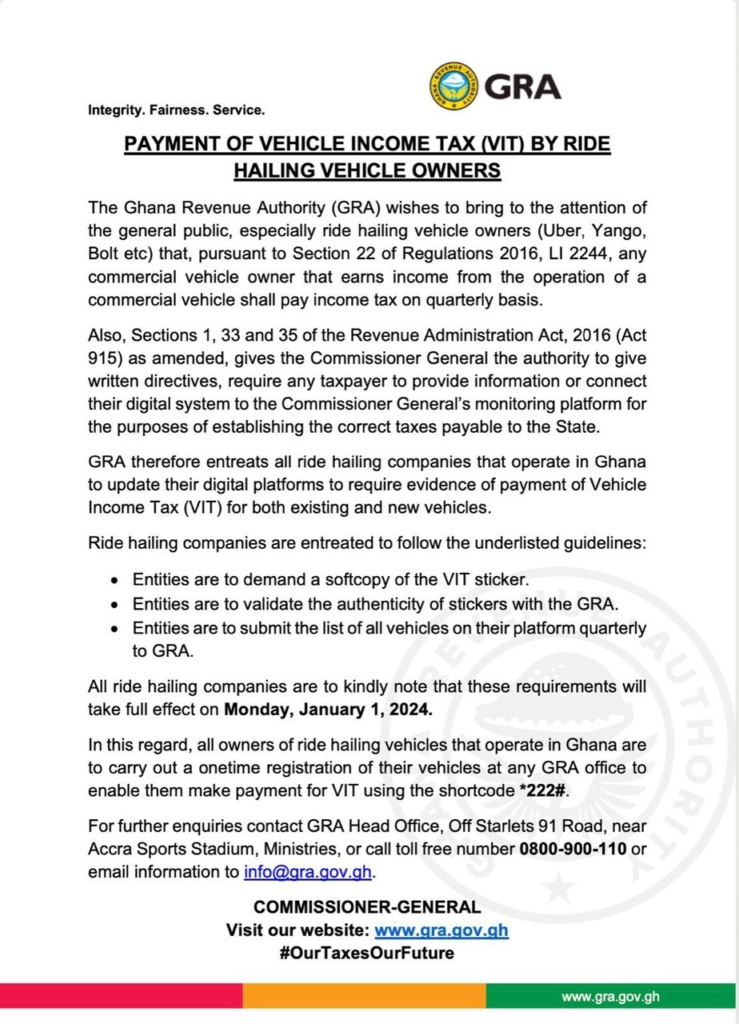
A strategic approach to tax planning is fundamental for a business aiming at substantial returns on its investments. Tax planning involves controlling or minimizing tax liabilities while remaining compliant with the relevant legislation.
It involves analyzing a business’s financial situation, income, expenses and other relevant factors to formulate a strategy to control tax liabilities to the state. Indeed, it is worth noting that that tax avoidance is permissible by law, tax evasion on the other hand is an offence. This terse article further looks at some of the ways a business can explore to minimize its tax liabilities.
Selecting a Business Structure
The business structure an individual chooses to operate will determine their tax obligations or liabilities to the state. A business can either be registered as a sole proprietor, partnership, private or public limited liability. Apart from its incorporation or legal status, factors such as the size, the business type, industry and the overall economic condition have their tax implications.
Those fundamentals are very important and understanding them can help an entrepreneur to develop a robust tax planning strategy to minimize (tax) liabilities. The challenge, however, is that many individuals or entrepreneurs hardly consult professionals to help them understand those tax dynamics on their line of business.
Tax Laws and Regulations
As a business owner or Small and Medium-size enterprises (SME), you require an understanding and the implications of the applicable tax laws including the Income Tax Act, 2015 (Act 896), Income Tax Regulation, 2016 (L.I. 2244), Value Added Tax Act, 2013 (Act 870), Value Added Tax Regulations, 2016 (L.I. 2243), Revenue Administration Act, 2016 (Act 915) and the Customs Act, 2015 (Act 891) with their attendant amendments.
There could be changes or deductions in a tax rate and credit that will help a business owner to adapt their tax planning strategies. As a result, businesses owners need apprise themselves with any available deductions, reliefs and exemptions to minimize tax liability. Tax laws and regulation are dynamic and subject to amendments over a period. It is important to keep abreast with any amendment and their implications to facilitate effective tax planning.
Consulting a Tax Professional
Tax planning requires expert advice to ensure that individuals and businesses are aware of their tax obligations. A tax professional has an in-depth knowledge and understanding of relevant tax laws and regulations and their compliance modalities. An experienced professional understands tax codes and can offer sound advice to individuals and businesses to choose the most tax-efficient structure.
Their services are important to help businesses to implement tax-saving strategies they may not be aware of but necessary to optimize their tax planning efforts. The crux of the matter is that many businesses and individuals are reluctant to seek advice of professionals. As a result, they are often inundated with compliance bottlenecks and penalties. To overcome those challenges, business owners need to seek guidance from a tax professional.
Maintain Accurate Financial Records
Accurate financial records provide reliable data for effective tax planning. Proper record-keeping ensures that an entrepreneur can claim all eligible deductions and credits that can reduce their taxable income.
A claim for eligible deductions is at the backdrop of identifying all the related expenses from operational costs that can significantly minimize a business’s tax burden. SMEs must ensure all financial transactions are well-documented and easily accessible.
Businesses can adopt basic accounting software to streamline their documentations. In the same vein, periodic reconciliation of financial data will not only ease tax preparation but also provide a clear overview of financial health to inform decision-making.
Ethical Considerations
Ethical dimensions of tax planning consider the moral implications of tax strategies and ensure they align with legal and social responsibilities. Thus, in pursuit of tax planning, taxpayers and tax professionals may encounter situations where the line between tax avoidance and tax evasion is blurred.
There are actual or perceived pressures that deter them from acting objectively. For instance, financial or other interests can influence the tax professional’s judgement or behaviour. There are concerns about the possibility of losing a significant client especially when there is an undue dependence on significant fees from that client.
In the same vein, long or close relationship with a client evokes sympathetic tendencies in handling their tax transactions and thereby creates familiarity threats. Ethical tax planning also involves the avoidance of harmful tax practices in the forms of tax havens and transfer mis-pricing. These situations require careful deliberation and judgment to ensure that actions align with ethical norms and societal expectations.
- Compliance
Ethical tax planning calls for an utter commitment to compliance with laws, regulations and standards. Thus, effective compliance means respect for tax laws and other requirements of the revenue authority.
Compliance involves accuracy in terms of ensuring tax returns and reports are complete, timeliness in meeting tax filing deadlines and payment schedules. It also requires collaborating with auditors, continuous monitoring or assessment of tax obligations and the commitment to staying informed about amendments regarding tax laws and regulations.
In light of that, taxpayers and tax professionals must proactively identify and address compliance risks by taking corrective actions to mitigate potential liabilities and penalties. Those corrective actions include implementing a robust compliance policy, conducting regular internal audits, reviewing of tax practices and seeking requisite guidance from legal, tax or accounting professionals.
- Fairness & Transparency
Fairness is of the essence in ethical tax planning to minimize tax liabilities and contribute to the common good of society. That is why taxpayers and tax professionals must be transparent and act in good faith in all their dealings with the revenue authority and other stakeholders. Transparency requires accurate reporting of income. In the same way, tax professionals have a responsibility to communicate openly and honestly with their clients by ensuring that they understand the tax implications of their decisions.
- Building Trust with stakeholders
Compliance with tax laws can help build trust with stakeholders. Trust can contribute to the organization’s long-term performance and sustainability. To sustain the trust with stakeholders, it is very necessary that business owners maintain open and regular communication with their auditors and tax officers.
This involves providing requested information in a timely manner, responding to questions or concerns, and working collaboratively to resolve any issues that arise. Despite technology can easily modernize tax compliance and ensure convenience to both the taxpayer and the state, some level of non-compliance cases will persist due to economic and behavoural factors.
Benefits of Tax Compliance
Improves Accuracy of Financial Reporting: It is important to gather all relevant tax information and ensure it is up to date because tax compliance requires accurate financial reporting that provides valuable insights into a company’s financial performance. Indeed, improving accuracy of financial reporting is also at the backdrop of sufficient data. In this regard and for audit purposes, it is important to maintain detailed records of all communications, documents, and other relevant information.
This can help ensure that you have a clear understanding of the audit process. As a result, any decisions or outcomes can help to prepare for future audits or other tax-related activities. The goal of a tax audit is to ensure that you follow all applicable tax laws and regulations. To achieve this, it is important to work proactively to identify and address any areas of non-compliance and to implement appropriate measures to prevent future issues.
Ensures Business Continuity: Failure to comply with tax laws and regulations can lead to the disruption of normal business operations. We have witnessed instances where business premises were closed (temporarily) for non-compliance and attracted negative media reports. Tax compliance ensures business continuity and can have a significant impact on the organization’s overall performance and growth.
Key Takeaways
- Consider consulting a tax professional to help you take advantage of all available tax savings opportunities.
- Regularly review and update your tax planning strategy to ensure it aligns with your businesses’ financial goals and objectives.
- Timely Tax Payments: You must endeavour to meet your tax filing and payment deadlines to avoid penalties and interest charges.
- Business owners must take advantage of tax education and training opportunities to stay up-to-date with the latest tax regulations and best practices.
Conclusion
Effective tax planning is a financial strategy that can sustain Small and Medium-sized Enterprises (SMEs) operations. It is, therefore, prudent for business owners to understand their business structure, implications of tax laws and keep proper books of accounts. Business owners must seek the guidance of a tax professional.
A professional will not only help them to ensure compliance but also advise on relevant strategies that will empower them to optimize their tax benefits. Indeed, businesses can retain more of their hard-earned income by executing effective tax planning strategies. Government and other stakeholders must to collaborate and work closely to create a culture of compliance that ensures that tax rules and norms remain relevant and enforceable.
BERNARD BEMPONG
Bernard is a Chartered Accountant with over 14 years of professional and industry experience in Financial Services Sector and Management Consultancy. He is the Managing Partner of J.S Morlu (Ghana) an international consulting firm providing Accounting, Tax, Auditing, IT Solutions and Business Advisory Services to both private businesses and government.
Our Office is located at Lagos Avenue, East Legon, Accra.
Contact: 233 302 528 977
233 244 566 092
Website: www.jsmorlu.com.gh
The post Tax planning strategies for SMEs appeared first on The Business & Financial Times.
Read Full Story


















Facebook
Twitter
Pinterest
Instagram
Google+
YouTube
LinkedIn
RSS